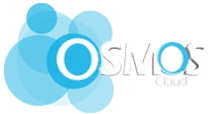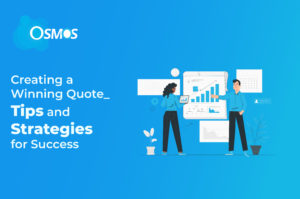CRM and CMS may sound similar, but if you open up each term, both are a lot more different from each other. By choosing software without knowing its features and functionality, a business can lose money and time.
It is crucial to spend time on research before implementing any software into the business. However, it is also understandable that taking out time from a busy schedule can be difficult.
No worries, today’s article is going to cover the differences between the software so the businesses can analyze which one will go best for their firm. So, let’s begin.
What Is CRM?
CRM, or Customer Relationship Management, is a process businesses or other organizations use to study and manage their interactions with customers. This process usually involves using data analysis to collect and assess large amounts of information. The goal of CRM is to improve the relationships between the organization https://www.osmoscloud.com/blog/increase-productivity-of-sales-reps/and its customers and ultimately to increase sales and profits.
There are many different CRM software programs available on the market, each with its unique features and benefits. However, all CRM programs share some basic functions, such as tracking customer interactions, managing customer data, and generating reports. Some CRM programs also offer additional features, such as marketing automation or sales force automation.
Why Does Business Need CRM?
To Improve Customer Service
Customer service is one of the most important aspects of any business. It can make or break a company, and it’s essential to get it right. CRM software can help businesses improve their customer service by giving them a 360-degree view of their customers. This allows businesses to create highly customized offers based on customer interests, purchase history, and more.
Moreover, CRM can also help businesses keep track of customer service interactions, so they can quickly and efficiently resolve any issues that arise. By using CRM software to improve customer service, businesses can increase customer satisfaction, loyalty, and retention.
Boost Sales
CRM systems make it easier for businesses to keep track of customer interactions, including phone calls, emails, and meeting notes. This information is stored in a central database, making it convenient for the firm to access customer data and history. With this information at their fingertips, a firm can provide better customer service, identify upselling and cross-selling opportunities, and close more deals.
CRM systems also help businesses automate repetitive tasks, such as emailing customers after purchasing or sending them birthday greetings. This frees up time for the staff to focus on more critical tasks, such as generating new leads and developing relationships with current customers. Ultimately, CRM leads the business to maximize sales.
Enhance Productivity
CRM software is designed to help businesses manage their customer relationships more effectively. By automating and streamlining key processes, CRM can help businesses save time and be more productive. Some of how CRM can enhance productivity include:
- Automating repetitive tasks: CRM software can automate repetitive tasks such as emailing customers, following up on leads, and scheduling appointments. This frees up time for employees to focus on more important tasks.
- Organizing customer data: CRM software can help businesses organize their customer data, making it easy to access contact details, purchase history, and preferences. This makes it easier to provide personalized service and address customers’ needs more effectively.
- Generating reports: CRM software can generate reports on customer activity, sales performance, and other metrics. This information can help businesses make better decisions about where to allocate resources and how to improve their operations.
CRM software can have a significant impact on productivity. By automating tasks, organizing customer data, and improving communication.
What Is CMS?
A CMS – Content Management System is software that allows the business to edit, collaborate on, store, publish and create digital content. CMS software is primarily used for web content management (WCM) and enterprise content management (ECM).
It provides an efficient way to manage large amounts of digital content for the business. Not only this, but it can also be used to store and track information such as text, images, videos, and documents. CMS software typically offers https://www.osmoscloud.com/blog/wp-content/uploads/2022/09/header-cover-1.jpgs a variety of features, such as the ability to create and edit content, track changes, add comments and notes, and collaborate with others.
There are many types of content management systems available. It ranges from simple applications allowing https://www.osmoscloud.com/blog/wp-content/uploads/2022/09/header-cover-1.jpgs to create and manage a small amount of content to complex enterprise-level systems that can handle significant scale content management needs.
Why Does Business Need CMS?
Provides Uniformed Look
CMS provides customizable tags, groups, and fields that can be used to manage content on your website. These features allow you to control how your content is displayed and accessed by https://www.osmoscloud.com/blog/wp-content/uploads/2022/09/header-cover-1.jpgs. Businesses can use tags to categorize content, while groups can be used to restrict access to certain sections of your website. The content manager can use fields to add additional information to your content, including author name, date, or keywords.
SEO Support
A good CMS can help the firm with its SEO efforts in several ways. It enables the business to easily manage and control the website’s metadata which will, in turn, help improve your SEO.
Metadata is one of the most important factors for SEO, as it helps search engines understand what your website is about and how it should be indexed. CMS also helps with SEO by providing support for clean and well-structured URLs. Search engines place a lot of importance on the structure of your URLs to improve the website’s SEO.
Reduce Buffering
CRM reduces the website’s buffering since it compresses the files and images to take up less space on the server. This reduces the time it takes for the server to send the files to the browser, which speeds up loading time.
Additionally, CMS can also cache pages and assets to prevent re-loading every time a https://www.osmoscloud.com/blog/wp-content/uploads/2022/09/header-cover-1.jpg visits the site. This can further reduce loading time, especially for https://www.osmoscloud.com/blog/wp-content/uploads/2022/09/header-cover-1.jpgs who visit the site frequently. Other than that, some CMS platforms also offer built-in optimization features that can help speed up website loading times even further.
Key Differences between CRM And CMS
Customer Relationship Management (CRM) |
Content Management System (CMS) |
|---|---|
| CRM secures customers’ information, including their emails, social media accounts, and phone numbers. | CMS focus on creating a customized in-line domain for your business, providing a https://www.osmoscloud.com/blog/wp-content/uploads/2022/09/header-cover-1.jpg-friendly interface. |
| It tracks the interaction of the customer with the business. CRM stores all the data, including customers’ purchase history, phone calls, and support requests. | It stores the website’s history and all the data. Either the information is secured in CMS itself or integrates with a Webhosting medium. |
| CRM follows up on the previous leads based on the collected data. It also helps in attracting new leads and retains them for long-term collaboration. | CMS provides exceptional site editing for your business that engages the customers with a visual and https://www.osmoscloud.com/blog/wp-content/uploads/2022/09/header-cover-1.jpg-friendly layout. |
Final Thoughts
The core responsibilities of software are distinguished from one another. However, a successful business is more likely to have both of them. As a result, it will help in managing customer interactions and content management at the same time. CMS is imperative as you build your business and want to create an online presence, while a CRM will be invaluable for helping you grow your customer base. Having a plan and understanding how these two systems work together can save you time and money in the long run.








